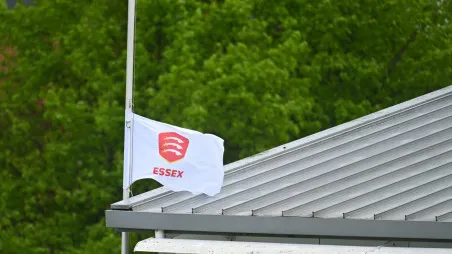
A former county cricket coach has been handed a nine-month suspension for sexual misconduct involving two junior female staff members, marking a serious disciplinary move by the Cricket Regulator and reinforcing cricket’s zero-tolerance stance toward inappropriate behaviour in the workplace.
The unnamed coach admitted to sending unsolicited explicit messages and sexually inappropriate images to the two women over a period stretching across the 2023 and 2024 seasons. In one instance, he also attempted to initiate physical contact with one of the women outside of work settings. These acts were found to be grossly unprofessional and a clear abuse of authority, especially given the coach’s senior role and the junior status of the victims.
The Cricket Discipline Commission (CDC) acknowledged that the incidents created a “power imbalance” and constituted serious breaches of professional conduct. The misconduct included five specific charges, all of which were admitted by the coach. The disciplinary panel concluded that his actions not only undermined the safe working environment expected within cricket but also brought the game into disrepute.
In a move that has sparked both support and criticism, the panel decided not to publicly disclose the coach’s identity. This decision was based on “exceptional health-related concerns,” with the panel citing a substantial risk of serious harm to the individual if named. While many in the cricketing world have called for greater transparency in such cases, others have acknowledged the need to balance accountability with safeguarding mental health.
Of the nine-month suspension, six months have been applied retroactively to account for time already spent out of the game during investigations, while the remaining three months are suspended for 12 months—subject to no further breaches. Before being allowed to return to any role in cricket, the coach must also complete formal education in safeguarding and maintaining professional boundaries.
Chris Haward, the ECB’s Managing Director of the Cricket Regulator, issued a strong statement following the ruling: “There is no place in our game for this kind of behaviour. We are determined to make cricket a safe and inclusive environment for everyone. The courage shown by the individuals who came forward should be recognised and respected.”
The disciplinary action is being viewed as part of a wider crackdown on abuse, harassment, and misconduct across cricket. Similar incidents in other countries, including Australia and South Africa, have led to heavy sanctions against coaches and officials, suggesting a global shift toward protecting players and staff, particularly women, from toxic environments.
While the name of the individual remains under wraps for now, the implications of this case are clear. Cricket boards and regulatory bodies are no longer willing to shield individuals in positions of power from consequences. The path back to professional involvement for the coach will be tightly controlled—and subject to intense scrutiny, should he ever seek a return.
This ruling sends a clear message: respect and accountability are non-negotiable, and misconduct—no matter how private—will be met with decisive action.

